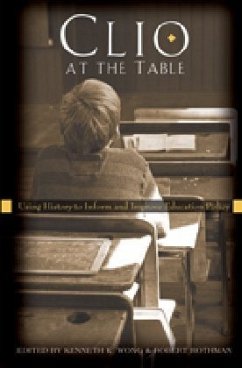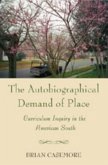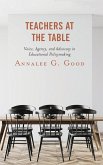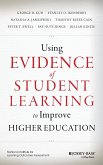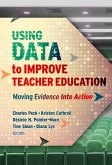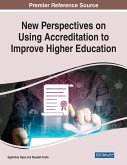Clio at the Table provides important historical perspectives on contemporary education policy issues. Based on a conference held in honor of Carl Kaestle, one of the most eminent education historians in the United States, the book includes chapters that address some of the major concerns of U.S. education today, all of which are particular foci of Kaestle's work: urban education, equity, the role of the federal government, and national standards. On each topic, the book presents summaries of new research and explores the uses of history to help further the connections between historical analysis and policy analysis. It will be particularly useful in courses on education history and policy.
"This broad-ranging collection of essays admirably fulfills its goals: to explore the connections between the discipline of history and the practices and problems of policymaking concerning American education. It will appeal greatly to scholars and practitioners alike." (James T. Patterson, Professor Emeritus of History, Brown University)
"This is an exceptionally valuable collection, combining essays by a select group of education historians who are unusually attuned to the contemporary policy scene and essays by scholars of contemporary education policy who are unusually informed about historical trends." (Jeffrey R. Henig, Author of 'Spin Cycle: How Research is Used in Policy Debates: The Case of Charter Schools')
"No one contemplating the virtues or perils of proposed education reforms should proceed in a historical vacuum. And anyone wanting solid evidence of how good historical scholarship can enrich contemporary debates should start with this volume, which honors oneof the great statesmen of American education history." (Michael J. Feuer, Executive Director, Division of Behavioral and Social Sciences and Education, National Research Council, Washington, D.C.)
"This is an exceptionally valuable collection, combining essays by a select group of education historians who are unusually attuned to the contemporary policy scene and essays by scholars of contemporary education policy who are unusually informed about historical trends." (Jeffrey R. Henig, Author of 'Spin Cycle: How Research is Used in Policy Debates: The Case of Charter Schools')
"No one contemplating the virtues or perils of proposed education reforms should proceed in a historical vacuum. And anyone wanting solid evidence of how good historical scholarship can enrich contemporary debates should start with this volume, which honors oneof the great statesmen of American education history." (Michael J. Feuer, Executive Director, Division of Behavioral and Social Sciences and Education, National Research Council, Washington, D.C.)

